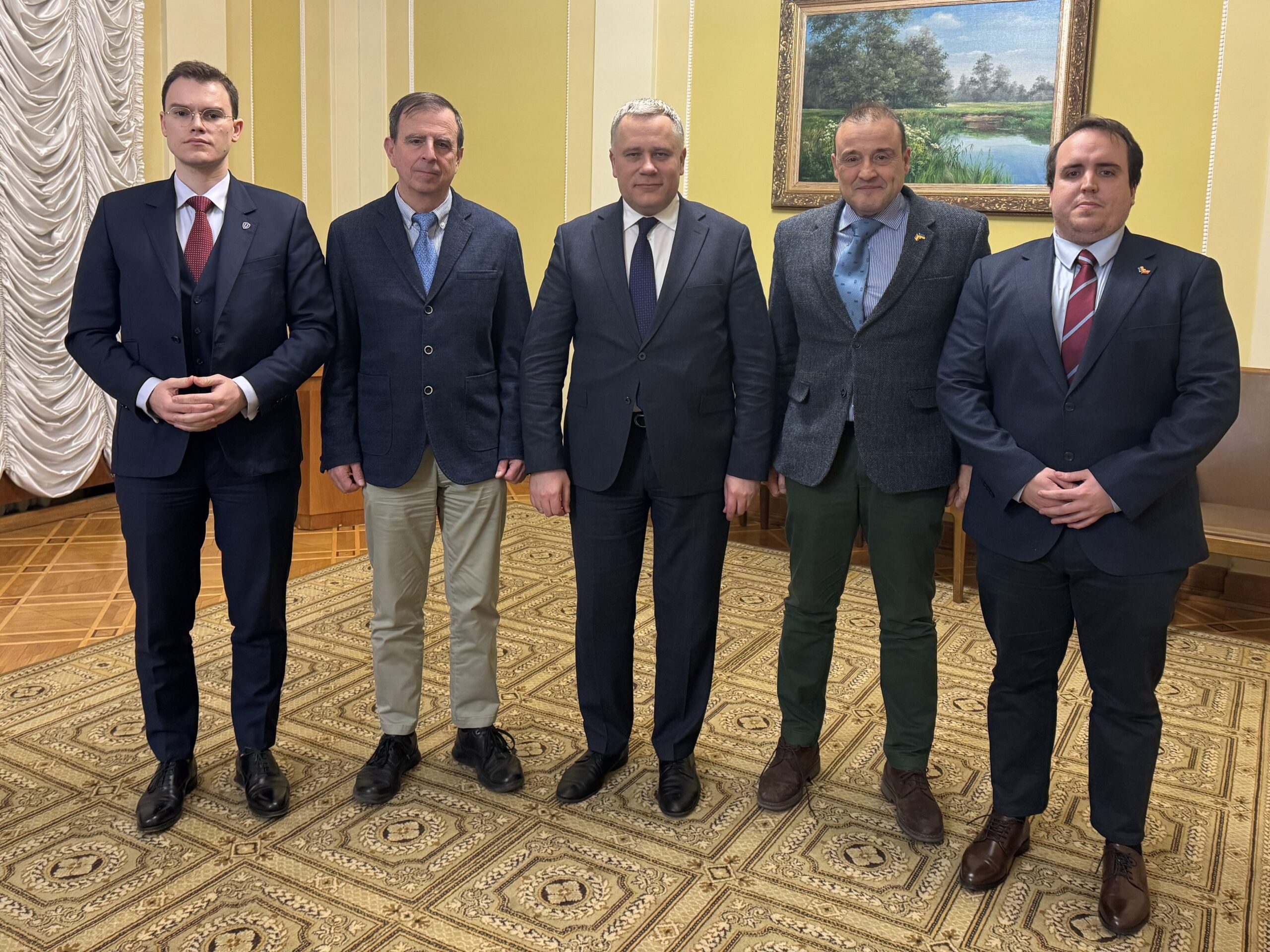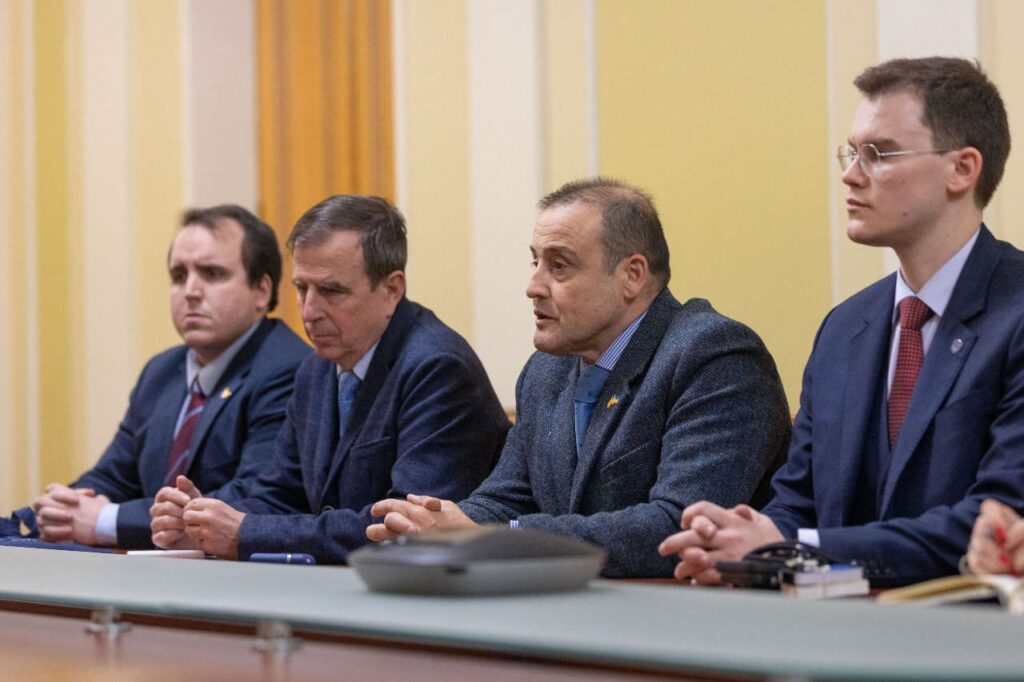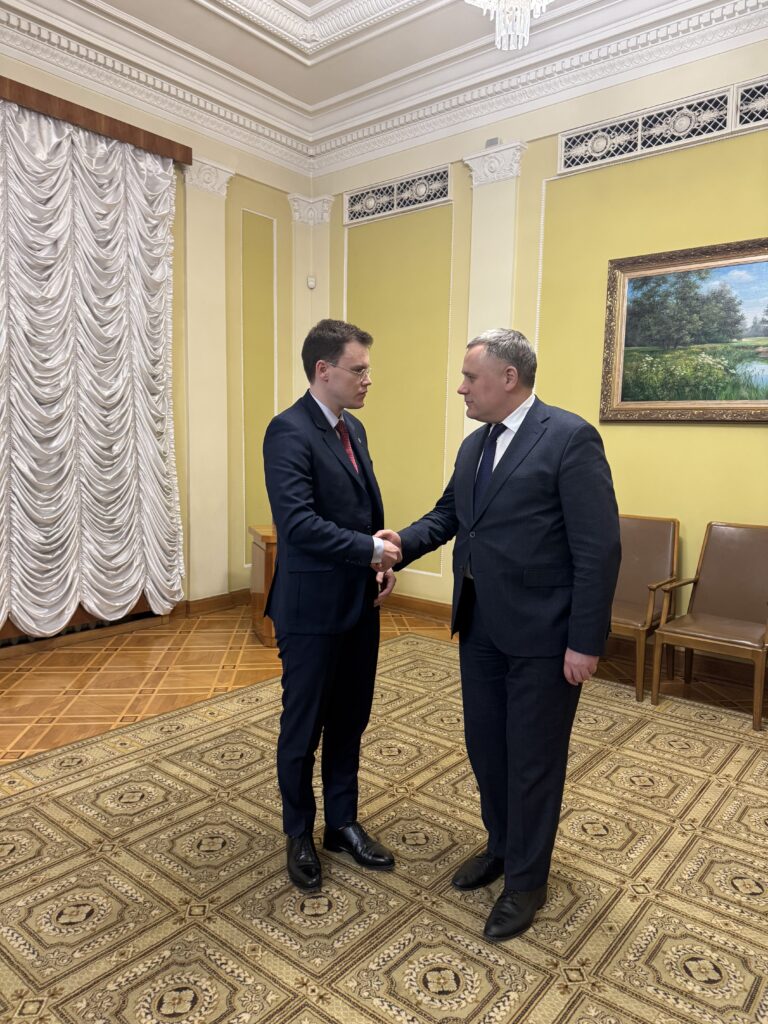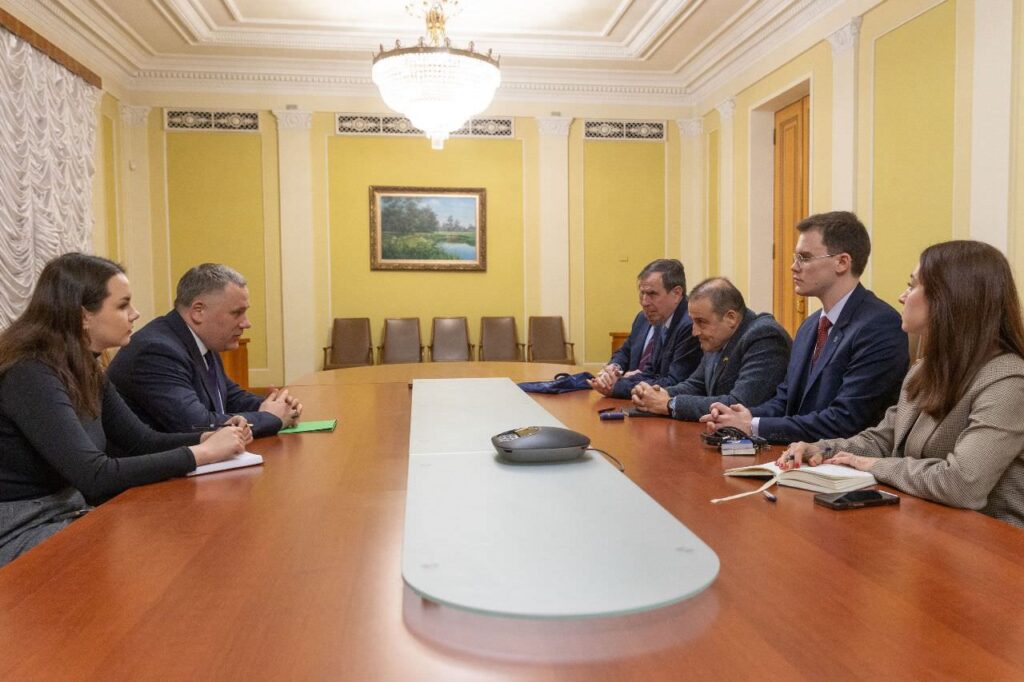On February 6th, Ihor Zhovkva, Deputy Head of the Office of the President of Ukraine, met with a delegation of Spanish security and strategy experts to discuss the current situation in Ukraine and the pressing challenges facing the country. The discussion underscored the importance of achieving a just and lasting peace—one that does not merely end hostilities but ensures Ukraine’s sovereignty and security in the long term. The notion of “peace at any cost” was firmly rejected in favor of a framework that upholds international law and justice.
The delegation included Victor Mario Bados Nieto, Director of the Spanish Institute for Strategic Studies (IEEE); Ignacio Fuente Cobo, Senior Analyst at IEEE; Manuel José Gazapo Lapayese, Director of Institutional Relations at UNIVERSAE and Director of the International Security Observatory; and Amín Lejarza de Bilbao Essalhi, Head of the Youth Section of Eurodefense Spain.
This visit was organized with the support of the European Union and the International Renaissance Foundation as part of the joint initiative European Renaissance of Ukraine.

A key component of the discussions was President Volodymyr Zelenskyy’s Peace Formula, a strategic framework that outlines the necessary steps to secure a durable resolution to Russia’s war of aggression. The initiative seeks to address not only military and territorial concerns but also energy security, humanitarian aid, and long-term reconstruction.
The meeting also highlighted the economic dimension of Ukraine’s resistance. As the war continues, investments in Ukrainian production—especially in critical defense industries—must be ramped up. The representatives discussed how European countries could play a more active role in supporting Ukraine’s industrial base, ensuring that Kyiv remains capable of sustaining its defense efforts. The “Danish model”, which integrates military aid with investments in defense manufacturing, was cited as a potential model for other countries to follow. Such an approach would not only strengthen Ukraine’s resilience but also reinforce European security architecture.
Security guarantees were another focal point of the meeting. Without concrete, long-term commitments from Western allies, the risk of renewed Russian aggression remains high. The discussions reaffirmed the necessity of binding security arrangements that go beyond verbal assurances, ensuring that Ukraine is not left vulnerable once the active phase of hostilities subsides.
A major challenge discussed was countering Russian propaganda, which has played a decisive role in shaping narratives both within Russia and abroad. For years, Russia has engaged in sustained disinformation campaigns, particularly in Crimea and eastern Ukraine. This effort has been systematic, long-term, and deeply entrenched—something that was not sufficiently countered in the years leading up to the full-scale invasion. The failure to effectively combat these narratives early on was acknowledged as a strategic mistake, and new strategies to combat Russian influence operations were explored.
The meeting concluded with a shared understanding that Europe must demonstrate greater unity in confronting Russian aggression. A divided response would only embolden the Kremlin, while a coordinated effort can significantly weaken Russia’s ability to sustain its war effort.



